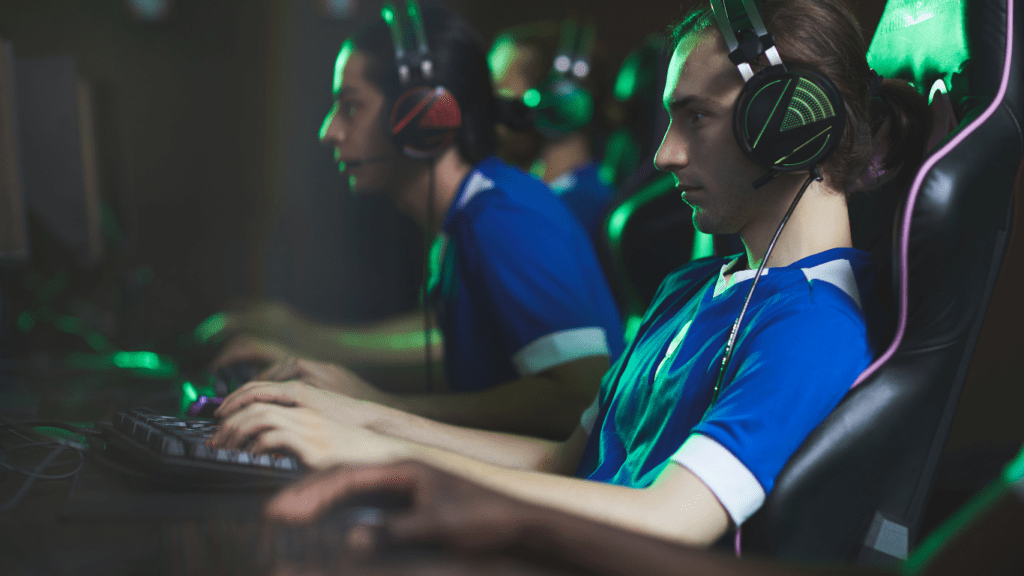The Rise of E-Sports in Education
E-sports has evolved from a niche hobby to a dynamic educational tool. Schools now integrate e-sports into their curriculums, offering classes in game design, strategy, and teamwork. Universities like the University of California, Irvine and Georgia State University have dedicated e-sports programs, complete with scholarships and professional training facilities.
Students involved in e-sports gain technical skills and soft skills. They learn coding, graphic design, and data analysis. Additionally, they develop problem-solving, leadership, and communication abilities through team-based games. An example is League of Legends, where players must coordinate strategies and respond quickly to changing scenarios.
Educational institutions recognize the career potential in the e-sports industry. Students are not only aspiring to be professional gamers, but they are also interested in roles like coaching, content creation, and event management. According to Newzoo, the global e-sports market is projected to reach $1.79 billion by 2022, illustrating the vast opportunities available.
By incorporating e-sports into education, schools provide students with innovative outlets for learning. This approach keeps students engaged and prepares them for future technological advancements and job markets driven by digital competencies.
Benefits of E-Sports in Education
E-sports offer various educational benefits, making them a valuable addition to the modern curriculum. These benefits span skill development, teamwork, and technological proficiency.
Skill Development
Students involved in e-sports cultivate critical skills that enhance their academic and personal lives. They improve cognitive abilities through strategic planning and problem-solving required in games like League of Legends and Dota 2. Participation in tournaments helps them manage stress and perform under pressure, useful for future career endeavors.
Teamwork and Collaboration
E-sports promote teamwork and collaboration, vital in both academic and professional settings. Players must coordinate with teammates to devise strategies and achieve common goals, mirroring corporate project management. Universities offer club activities where students work together, fostering relationships and improving interpersonal skills.
Technological Proficiency
Involvement in e-sports boosts students’ technological abilities. They become proficient with hardware and software crucial for gaming, including high-performance computers and advanced graphic design tools. Curriculum offerings in game design and coding further prepare them for careers in tech-driven fields, meeting the demands of the growing digital job market.
Case Studies of E-Sports Programs in Schools
E-sports programs are becoming more integrated into educational institutions. Schools use gaming to develop various skills in students, from problem-solving to teamwork.
High School Initiatives
In 2018, Orange County High Schools in California launched an e-sports league. The league included 38 schools competing in games like League of Legends. Students gained teamwork and strategic thinking abilities. The initiative also helped students develop time management skills, balancing practice with their studies.
Another example is the North America Scholastic Esports Federation (NASEF). NASEF partnered with high schools to incorporate e-sports programs into their curriculums, providing coaching, resources, and competitions. Students learned leadership, digital literacy, and communication skills, enhancing their academic performance and future career prospects.
College and University Programs
Universities are also embracing e-sports. The University of California, Irvine (UCI), established an e-sports arena in 2016. UCI offers scholarships for skilled gamers and integrates e-sports into its academic offerings. Courses cover game design, computer science, and management. This comprehensive program prepares students for careers in the gaming industry and related fields.
Another notable initiative is by the Big Ten Conference, which includes universities like Ohio State and Michigan State. These schools offer dedicated e-sports facilities and academic programs. Students participate in collegiate tournaments and network with industry professionals. The exposure helps them acquire skills in marketing, event planning, and software development.
Challenges and Criticisms
Despite the benefits, e-sports in education face several challenges and criticisms.
Health Concerns
Extended gaming sessions can lead to physical health issues. Students often experience eye strain, carpal tunnel syndrome, and back pain from prolonged screen time. According to the American Optometric Association, excessive screen time can cause digital eye strain, affecting sleep patterns and leading to fatigue. Schools incorporating e-sports must balance gaming with physical activity to mitigate these risks. Introducing ergonomically friendly setups and regular break intervals can help address this issue.
Academic Performance
Critics argue that e-sports might negatively impact academic performance. Students may prioritize gaming over their studies, leading to lower grades.
A study published in the Journal of Educational Computing Research indicates that excessive gaming correlates with reduced academic achievement. Educational institutions need to enforce strict guidelines to ensure students balance gaming with academic responsibilities. Schools can incorporate mandatory study sessions and performance monitoring to mitigate these concerns and maintain academic integrity.
The Future of E-Sports in Education

E-sports’ role in education is evolving rapidly. Schools and universities are integrating gaming into curricula and extracurricular activities, shaping the future of learning and skill development.
Emerging Trends
- Curricular Integration
Schools incorporate e-sports into academic programs. Subjects like computer science, coaching, and game design now include gaming components to demonstrate real-world applications.
- Scholarships And Leagues
Higher education institutes offer e-sports scholarships. Universities establishing e-sports leagues include California State University and Ohio State University. These programs incentivize students to pursue careers in gaming.
- Industry Collaborations
Educational entities partner with gaming companies. Collaborations with organizations like Riot Games and Blizzard ensure industry relevance in academic programs.
Predictions And Opportunities
- Skill Development
E-sports fosters critical thinking and teamwork. By participating in gaming, students enhance strategic planning and collaborative skills, essential for future job markets.
- Career Pathways
The gaming industry offers diverse career opportunities. Roles in game development, marketing, and event management emerge as legitimate career paths for students.
- Cross-Disciplinary Benefits
E-sports’ influence extends beyond gaming. Students apply skills learned in gaming, such as problem-solving and communication, across various academic disciplines and real-life scenarios.
With these factors, e-sports in education is set to become a significant part of academic and professional development, reshaping traditional learning paradigms and opening new avenues for students.




